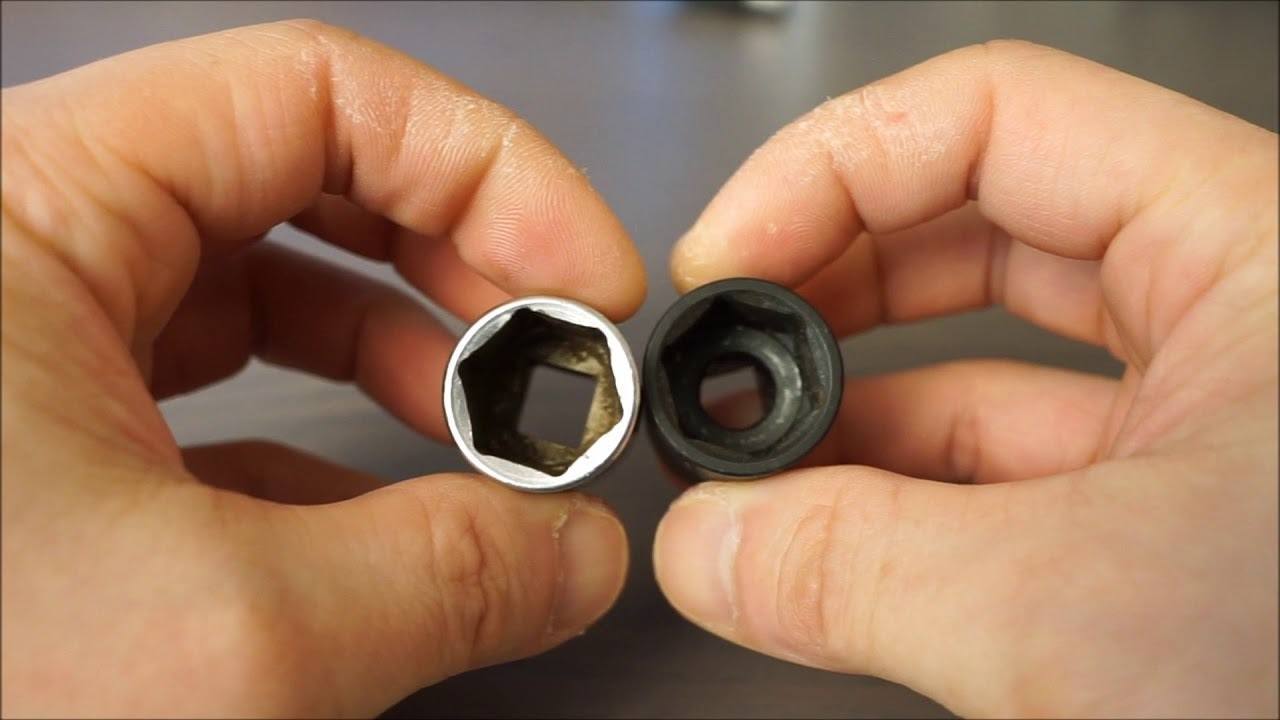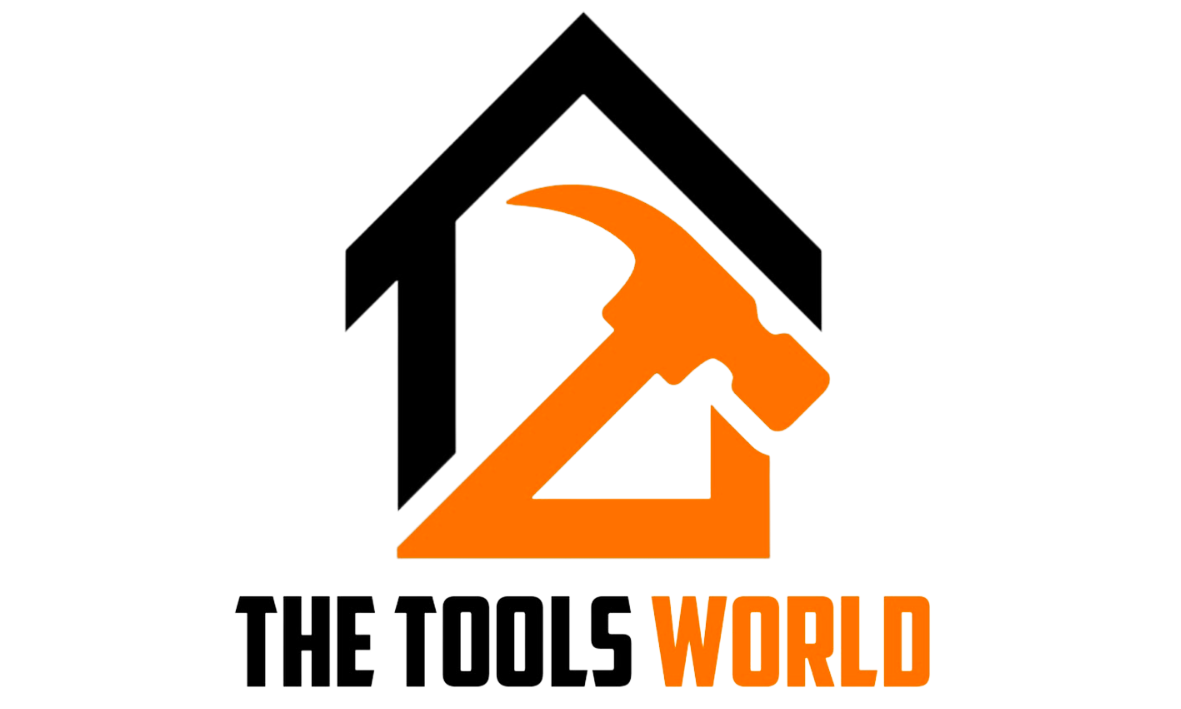Impact sockets are designed to be used with impact drivers. They are thicker and have a more robust construction than regular sockets, which makes them less likely to break or crack when used with high-torque impact drivers. Impact sockets also have a black oxide finish that helps to resist corrosion.
If you’re working with sockets, it’s important to know the difference between impact sockets and regular sockets. Impact sockets are designed to withstand the high torque of an impact wrench, while regular sockets are not. Impact sockets have a thicker wall and are made of stronger materials, so they can handle the higher force without breaking.
If you’re not sure which type of socket to use, always err on the side of caution and go with an impact socket.
Difference Between Chrome & Impact Sockets
What Happens If You Use Non-Impact Sockets?
If you use nonimpact sockets, they will not be able to grip the nut or bolt as tightly. This could cause them to slip off and potentially break or damage the socket. In addition, using a non-impact socket on an impact driver could damage the tool.
What is the Difference between Impact Socket And Normal Socket?
An impact socket is a type of socket that is specifically designed to be used with an impact wrench. Impact sockets are made from a harder material than regular sockets, and they have a thicker wall to prevent them from shattering when impacted by the high torque of an impact wrench. Impact sockets also have a hexagonal or square drive that fits onto the anvil of the impact wrench, instead of the typical round drive found on regular sockets.
The main difference between an impact socket and a regular socket is its design and construction. Impact sockets are made from stronger materials and have thicker walls to withstand higher torque levels, while regular sockets are not as durable and can break more easily under high torque. Additionally, impact sockets have a different drive type that is compatible with impact wrenches, while regular sockets typically have a round drive that will not fit onto the anvil of an impact wrench.
Can You Use Impact Sockets With a Breaker Bar?
Yes, you can use impact sockets with a breaker bar. Impact sockets are designed to be used with impact wrenches and other impact tools. They are made of a harder material that can withstand the high forces generated by these tools.
While you can use a regular socket with an impact wrench, it will not last as long and could break under high force.
Should I Get Chrome Or Impact Sockets?
If you’re looking for a new socket set, you might be wondering whether to get Chrome or Impact sockets. Here’s a quick guide to help you decide which is right for you. Chrome sockets are the most common type of socket and are typically less expensive than impact sockets.
They’re made from chrome vanadium steel, which makes them strong and durable. They’re also less likely to round off fasteners than other types of sockets. Impact sockets are designed for use with impact wrenches or drivers.
They’re usually made from chromoly steel, which makes them even stronger and more durable than chrome sockets. Impact sockets also have a thicker wall that helps protect against shattering in case of a high-impact force.

Credit: landroverbar.com
Why Not Use Impact Sockets All the Time
If you’re a professional mechanic, you probably already know the answer to this question. For the rest of us, though, impact sockets are not always the best choice. Here’s why:
Impact sockets are designed for use with impact wrenches. They have a thicker wall than regular sockets, and they’re usually made from stronger materials like chromium molybdenum steel. That makes them less likely to crack or shatter under high torque applications.
However, impact sockets are also much more expensive than regular sockets. And unless you’re using an impact wrench all the time, you probably don’t need the extra durability that they offer. In addition, impact sockets can be more difficult to use than regular sockets.
The thicker walls make it harder to get a socket onto a nut or bolt head, and they can be difficult to remove once they’re on there. Finally, impact sockets can damage nuts and bolts over time due to the constant pounding of an impact wrench. If you’re working on delicate machinery or doing precision work, regular sockets are a better choice.
Can You Use Impact Sockets As Regular Sockets
Impact sockets are designed to be used with impact wrenches, which deliver a high amount of torque. They’re usually made from chrome molybdenum steel, which is extremely durable. However, this also means that they’re much heavier than regular sockets.
So, if you’re looking to use an impact socket as a regular socket, be prepared for some added weight.
Additionally, the teeth on impact sockets are designed to grip onto fasteners more securely, so they may be more difficult to remove by hand. And because of their construction, they’re not meant to be used with ratchets – only impact wrenches.
So, if you do decide to use an impact socket as a regular socket, make sure you have the right tools on hand to remove it when the time comes.
Impact Wrench Sockets 1/2
If you’re looking for an impact wrench socket that can handle a 1/2-inch drive, then you’ve come to the right place. In this blog post, we’ll take a look at the different types of 1/2-inch impact wrench sockets on the market and help you choose the right one for your needs. There are three main types of 1/2-inch impact wrench sockets: standard, deep well, and universal.
Standard impact wrench sockets are designed to be used with Impact wrenches with an anvil-style retainer. Deep well impact wrench sockets have a longer body that allows them to be used with deeper recessed bolts. Universal impact wrench sockets have a versatile design that allows them to be used with both standard and deep well Impact wrenches.
When choosing an impact wrench socket, it’s important to consider the material it’s made from. The most common materials are steel and aluminum. Steel is the stronger of the two materials, but it’s also heavier and more expensive.
Aluminum is lighter weight and cheaper, but not as strong as steel. Once you’ve decided on the type and material of your 1/2-inch impact wrench socket, there are a few other factors to consider before making your purchase. First, check the size chart to make sure you’re getting the right size socket for your Impact Wrench.
What are Impact Sockets Made of
If you’ve ever worked with sockets, you know that there are different types for different purposes. Standard sockets are used for general-purpose work, while impact sockets are designed to be used with impact wrenches. But what exactly are impact sockets made of?
Impact sockets are made from a variety of materials, but the most common is chromium molybdenum steel. This material is extremely tough and can withstand the high torque output of an impact wrench. Impact sockets also have a black oxide finish which helps to resist corrosion.
The construction of an impact socket is slightly different than a standard socket. The walls of an impact socket are thicker in order to handle the higher force exerted by an impact wrench. The faces of the socket (where the wrench contacts) are also reinforced to prevent wear and tear.
While they may cost a bit more than standard sockets, investing in a set of good-quality impact sockets will save you money in the long run. Not only will they last longer, but they’ll also make your job easier and help you avoid damaged fasteners.
What are Impact Sockets Used for
An impact socket is a heavy-duty socket that is used with an impact wrench. Impact sockets are designed to withstand the high torque output of an impact wrench. They are usually made from chrome molybdenum alloy steel or manganese steel for strength and durability.
The hexagonal shape of the socket helps to grip the fastener tightly so that it does not slip off during use. Impact sockets are most commonly used in automotive applications, but can also be used in other industries such as construction and manufacturing. They are often used to remove stubborn or frozen fasteners, nuts, and bolts.
Impact sockets can be used with either hand-operated or power-operated impact wrenches.
Best Material for Impact Sockets
If you’re in the market for a new set of impact sockets, you might be wondering what the best material is. There are three common materials that sockets are made from steel, chromium-vanadium (Cr-V), and titanium. Here’s a quick rundown of each material and its pros and cons:
Steel: This is the most common material for impact sockets. It’s strong and durable, but it can rust over time if not properly cared for. Chromium-vanadium: This material is slightly less strong than steel, but it’s more resistant to corrosion.
It’s also generally less expensive than steel or titanium sockets. Titanium: This is the strongest and most durable option, but it comes with a higher price tag. Titanium sockets will also last longer than steel or Cr-V ones before needing to be replaced.
Best Impact Sockets
An impact socket is a type of socket that is designed to be used with an impact wrench. They are usually made from steel or chrome vanadium and have a thicker walls than regular sockets. This makes them much more durable, and able to withstand the high torque that is produced by an impact wrench.
There are many different sizes and types of impact sockets available, so it is important to choose the right one for the job at hand. For example, there are Impact Sockets designed for use with lug nuts, as well as ones specifically for use with spark plugs. There are also different Drive Sizes (the size of the square drive on the socket) to consider – 1/2″, 3/8″, 1/4″, etc.
When shopping for Impact Sockets, it is important to buy from a reputable brand like Craftsman or Dewalt. This will ensure that you are getting a quality product that will last. It is also a good idea to buy Impact Sockets in sets, as this can often be cheaper than buying them individually.
Do I Need Impact Sockets
When working on a car, there are many different types of sockets that can be used. However, impact sockets are a must for anyone who plans on doing their own work. Here is everything you need to know about impact sockets and why they should be in your toolbox.
What are Impact Sockets?
Impact sockets are designed to be used with impact wrenches. They have a special design that allows them to withstand the high torque output of an impact wrench without breaking or stripping the fastener.
This makes them ideal for use on stubborn bolts and nuts that require extra force to loosen.
Why Do I Need Them?
If you plan on doing any type of work on your car, then you will need a set of impact sockets.
They come in handy for all sorts of tasks, such as changing tires, removing suspension components, and more. Even if you don’t plan on using an impact wrench, having a set of these sockets is still a good idea since they can be used with regular ratchets and hand wrenches as well.
Conclusion
There are several key differences between impact sockets and regular sockets. First, impact sockets are designed to withstand the high torque of an impact wrench, while regular sockets are not. Second, impact sockets have a thicker wall than regular sockets, which makes them more durable.
Finally, impact sockets have a different shape than regular sockets, which allows them to grip the fastener more securely.

